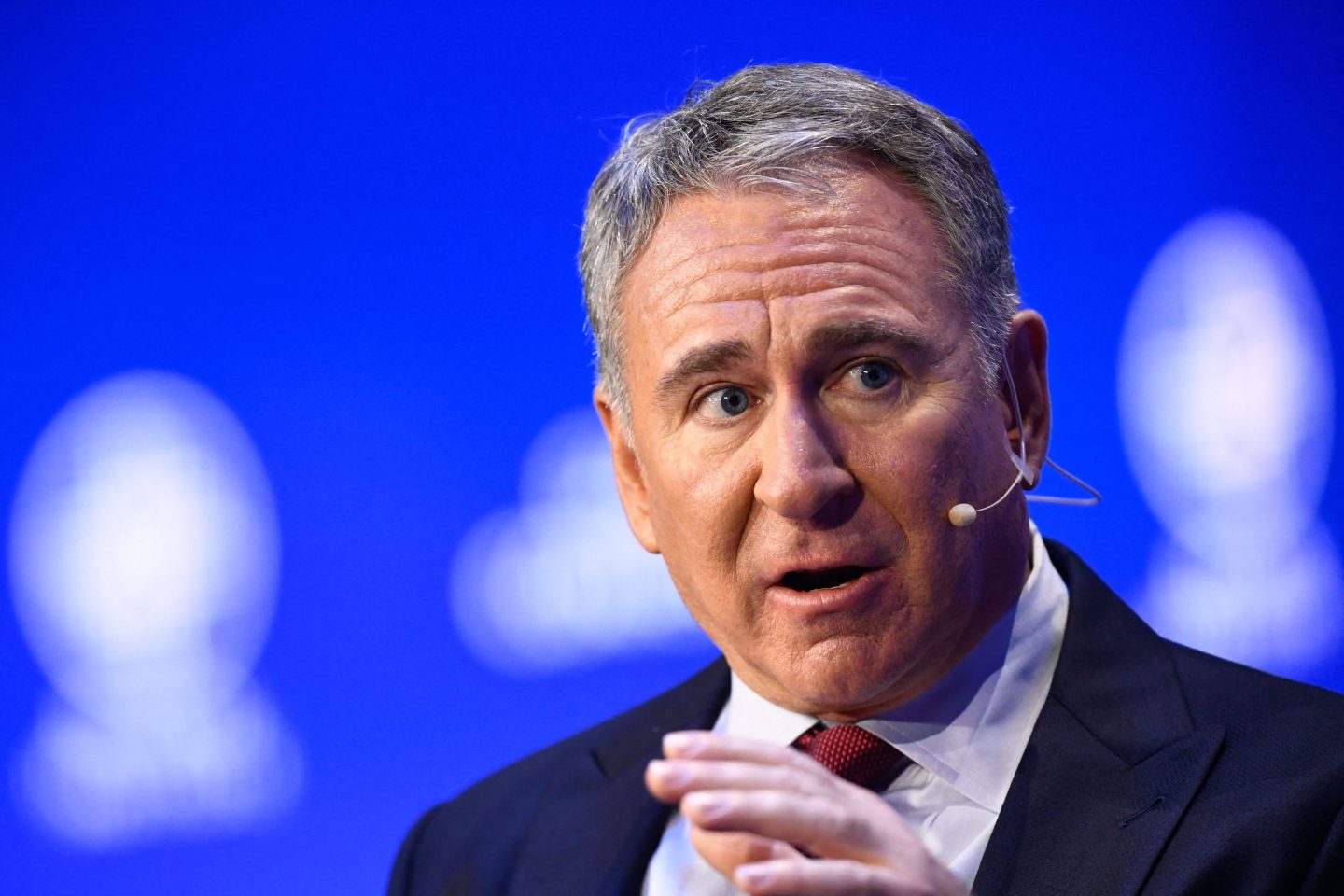Good morning! Fortune writer Natalie McCormick here, filling in for Ruth.
It’s fair to say that Ken Griffin, CEO and founder of the $63 billion hedge fund firm Citadel, is obsessed with winning.
“History is written by the winners,” he told the Wall Street Journal in a lengthy profile. His focus on vanquishing competitors is evident within Citadel, where he’s viewed internally as an intense and demanding boss who loathes complacency—and hires with this aversion front of mind.
In a recent investor letter, the financier, who’s worth an estimated $42 billion, wrote that he wants to “create the most formidable team in the history of hedge funds.” He echoed this sentiment to the Journal, stating that he hires people who are “winners in life” because “winners in finance is often not enough.”
Case in point, he said, his head of risk, Joanna Welsh, is a champion powerlifter. And his co-chief investment officer, Pablo Salame, is a former teenage tennis star who rose to the executive ranks at Goldman’s trading division before joining Citadel.
The hiring process at the company is extensive and thorough, too. Job candidates are tasked with completing a lengthy professional assessment and answering questions about their childhood goals and accomplishments.
As for the concrete skills he seeks, Griffin said Citadel appreciates those who are good communicators, good collaborators, and good problem solvers and who encourage debates to arrive at a strong conclusion.
In November, he spoke at the London School of Economics about the need to bring passion to one’s work, reiterating his victor-only mantra. As the world becomes more winner-takes-all, “it disproportionately favors those who have domain expertise, the mental agility, the adaptability, and the willingness to put in the time, the energy, and the effort,” he said at the time.
“Without passion, you are not likely to have the perseverance to be the best at what you’re doing.”
Natalie McCormick
natalie.mccormick@fortune.com
Today’s newsletter was edited by Ruth Umoh
Leadership lessons
Great leaders are realists. They're practical, centered, and extremely matter-of-fact about challenges and solutions, Griffin said on the In Good Company podcast earlier this year.
“They don't suffer from the sunk cost fallacy, suffer from undue hope when a situation is not hopeful, and they make good, rational decisions all the time.”
News to know
Starbucks’ CEO left after just 16 months on the job, far short of the eight-year average for CEOs. But he’s not alone. From J.C. Penney to General Electric, here’s why six notable CEOs departed months after their appointment. WSJ
Chipotle’s CEO made it to the C-suite by age 33. Here’s a look at his rise from an executive at Yum! Brands to the Starbucks’ corner office. Fortune
The former CFO of Royal Bank of Canada is suing the company over her termination, which she says caused “reputational harm" and ruined her chance to become the bank’s first female CEO. Fortune
Vice President Kamala Harris’s economic plan has been cheered by the likes of billionaire Mark Cuban but has also drawn criticism from some economists for increasing federal spending. WaPo
Smarter in seconds
Onward and upward. Goldman Sachs’ CEO was rejected twice by the firm. He’s led it to over $50 billion in revenue
Calling it quits. How Ford Foundation’s president knew it was time to move on from his role—and why he’s still ‘bullish’ on the American dream
Goose goes global. Canada Goose CEO isn’t worried about diluting the brand as it expands—but experts caution there are graveyards of companies that have tried
Think outside the box. Why Aflac’s CEO chose the duck (even though it made him very nervous)
Call to action
Apply. Think you have what it takes to lead the future Fortune 500? Or know someone who does? Complete the submission form for the Fortune Next to Lead 50, a spotlight on fast-rising, purpose-driven leaders.
Let’s chat. I’m opening my calendar to set up meetings with PR heads at Fortune 500 companies. Shoot me a line to schedule a meeting: ruth.umoh@fortune.com












